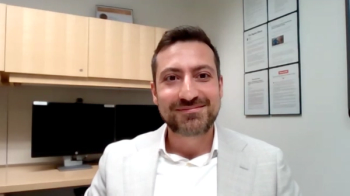
Health Care Delivery
Latest News

Latest Videos

Podcasts
CME Content
More News

As Obergefell v Hodges turns 10 years, LGBTQ+ rights face renewed threats amid political shifts, impacting health care equity and access.

South Carolina had previously barred abortion clinics, including Planned Parenthood, from participating in Medicaid, leaving many patients vulnerable to uncovered treatment.

New data show sharp growth in pharmacists’ clinical roles, from the intensive care unit to outpatient chronic disease management, amid staffing and drug shortages.

Data from 2019 to 2023 show 9.2% of adults with obesity reported cost-related medication adherence.

Osteoarthritis leads the burden, projected to affect 50% of postmenopausal women by 2045.

Belimumab is now the first and only subcutaneous biologic therapy approved for at-home administration in pediatric lupus nephritis.

Up to 257 million Americans could benefit from these prior authorization reforms that could have cross-market implications on health care plans administered through commercial insurers, Medicare Advantage, and Medicaid.

It's a critical time to spotlight the dire health disparities affecting Black Americans, from premature deaths to maternal care, and the urgent need for systemic reforms.

Patients who see a cardiologist at least once a year are about 24% less likely to die in the following year.

Discontinuing the weight loss treatment before hitting the recommended maintenance dose contributes to low-value care despite provider follow-up and efforts to manage side effects, says Hamlet Gasoyan, PhD, Cleveland Clinic.

Democratic leaders assert the Emergency Medical Treatment and Labor Act (EMTALA) remains vital for emergency care, countering confusion from recent policy changes affecting abortion rights and patient safety.

Remote care reduced readmissions and improved functional outcomes in COPD in a recent study.

Shorter venetoclax durations in patients with acute myeloid leukemia (AML) and myelodysplastic syndromes (MDS) yielded comparable survival outcomes in a new study, challenging treatment norms.

This study highlights the vital role of caregivers in supporting women living with pulmonary arterial hypertension (PAH) and underscores the need to enhance caregiver support and address unmet needs to improve patient outcomes.

Merrill H. Stewart, MD, Ochsner Health, outlines the financial, logistical, and reimbursement barriers slowing the adoption of cardiac stress testing, but growing recognition of its long-term value could drive wider use.

The country has seen historic reductions in uninsured rates and improvements in affordability since the implementation of the Affordable Care Act, the Commonwealth Fund scorecard shows.

Andrew Evens, DO, MBA, MSc, deputy director for clinical services and chief physician officer, Rutgers Cancer Institute, introduces New Jersey's new state-of-the-art facilities at the Jack & Sheryl Morris Cancer Center.

Engaged hospital leadership enhances the adoption of health-related social needs initiatives, driving progress toward health equity and improved patient care, according to a new study.

Learning the best type of HIV prevention for those at highest risk can start with conversations about their options, writes Zandraetta Tims-Cook, MD, MPH, AAHIVS

Explore how health equity and policy shape outcomes, revealing disparities in kidney disease, atopic dermatitis, and cancer care for vulnerable populations.

Sessions and posters at the 2025 European Hematology Association Congress evaluated the potential and real-world practices of using artificial intelligence (AI) to predict and improve outcomes for patients with hematological diseases.

The announcement of the new members of the CDC Advisory Committee on Immunization Practice comes days after the HHS secretary removed all previous members of the panel.

Race-free kidney function equations may underestimate risks for Black adults according to a new analysis.

Mansi Shah, MD, discusses the role of stem cell transplant in multiple myeloma (MM) and the logistical barriers to wider adoption of bispecific therapies.

Treprostinil palmitil inhalation powder (TPIP) for pulmonary arterial hypertension (PAH) showed promising results in a midstage clinical trial, significantly improving key measures of heart and lung function.





















